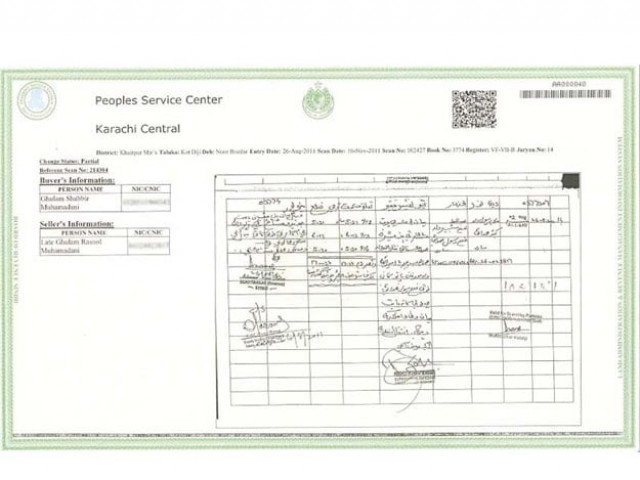Computerising land records
New system will, finally, finish monopoly of patwari, as well as reduce possibility of records being tampered with
One rarely gets to hear a lot of good news from Pakistan, particularly when it comes to taking actions that aim to facilitate the public and prevent large-scale corruption. However, from Sindh we have some excellent news in this regard. The province is nearing the end of the brave task undertaken to digitise all its land records. Nearly 15 million pages of land ownership documents, that comprise 90 per cent of all inventory, have been scanned and computerised, in effect eliminating the manual process of land documentation. So far, the new, computerised database can be accessed for free in three of the 27 district service centres in Sindh, with another five centres to be opened up in the coming week.
The computerisation of land records comes after the Supreme Court, in a June 2012 order, had told all provinces to replace the manual system with digital records. Sindh has managed to complete a tremendous task in three and a half years that would typically have taken at least 10 years in the region — and that too, at a significantly low cost. The Larmis, or the Land Administration and Revenue Management Information System, is costing the province Rs4.9 billion, as compared to Punjab’s cost of computerisation, which is Rs15 billion, being footed by the World Bank. Khyber-Pakhtunkhwa’s computerisation is being carried out in conjunction with UN-Habitat. The Sindh government, on the other hand, is financing the project from its own funds. The digital database will be revolutionary, as it has the potential to make huge dents in the web of corruption that the public often finds itself trapped in when trying to obtain information about land records. A majority of people are forced to access this information through illegitimate means and by doling out money to the government appointed patwari — the custodian of all property records. The new system will, finally, finish the monopoly of the patwari, as well as reduce the possibility of land records being tampered with. This digitisation of records can also have several socioeconomic benefits. The process can lead to more security for landowners, particularly women and other vulnerable groups, who are always in danger of falling prey to the land mafia. It is hoped that this system, then, changes the culture of corruption that has afflicted Sindh and particularly Karachi for a long time now.
Published in The Express Tribune, August 9th, 2015.
Like Opinion & Editorial on Facebook, follow @ETOpEd on Twitter to receive all updates on all our daily pieces.

COMMENTS (2)
Comments are moderated and generally will be posted if they are on-topic and not abusive.
For more information, please see our Comments FAQ